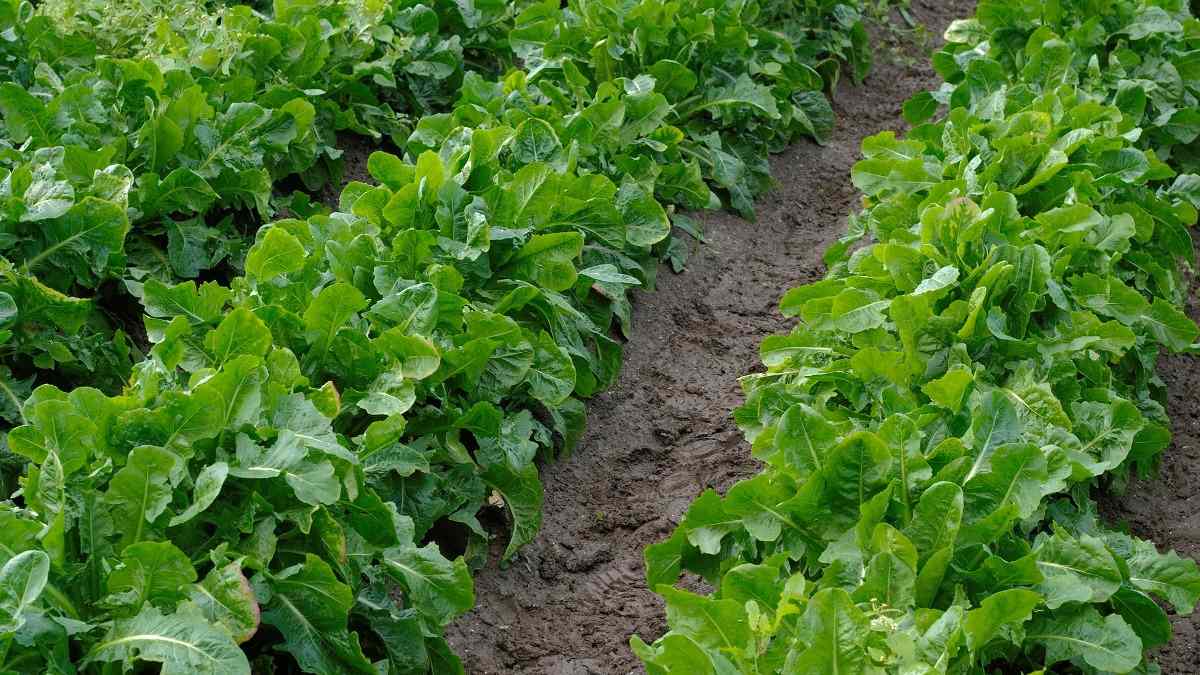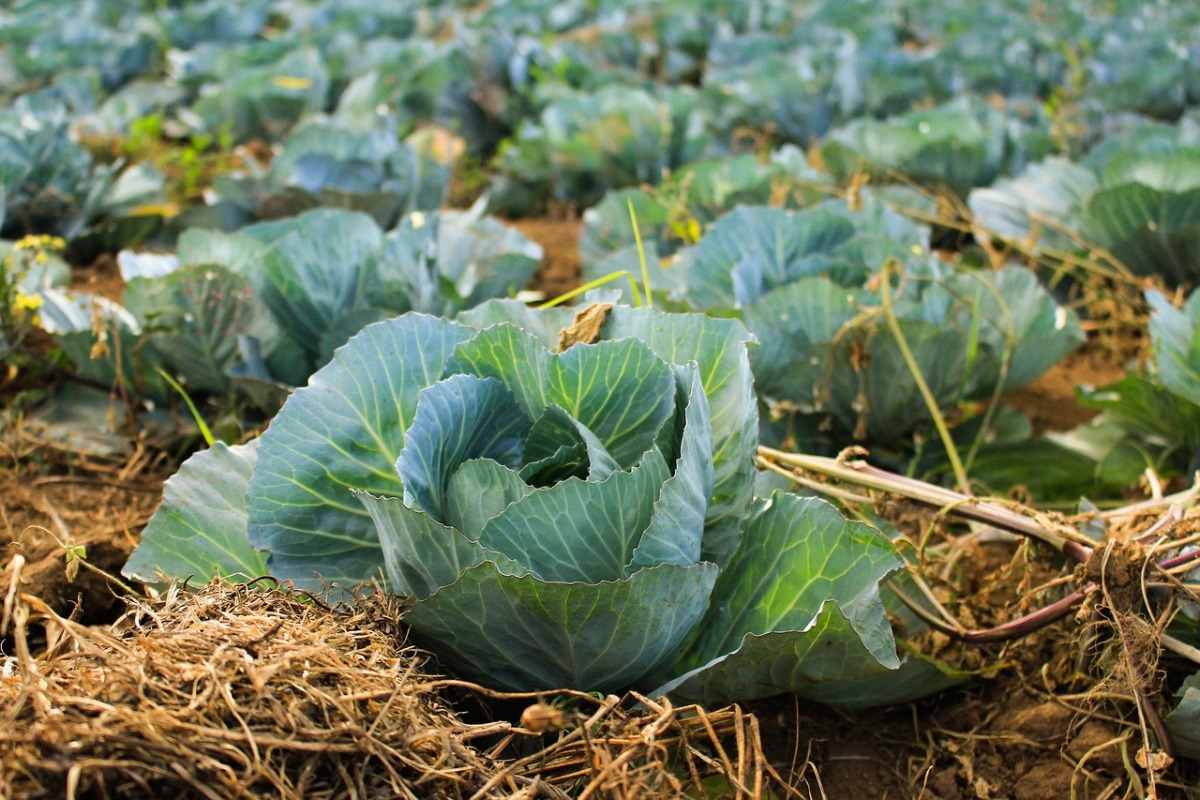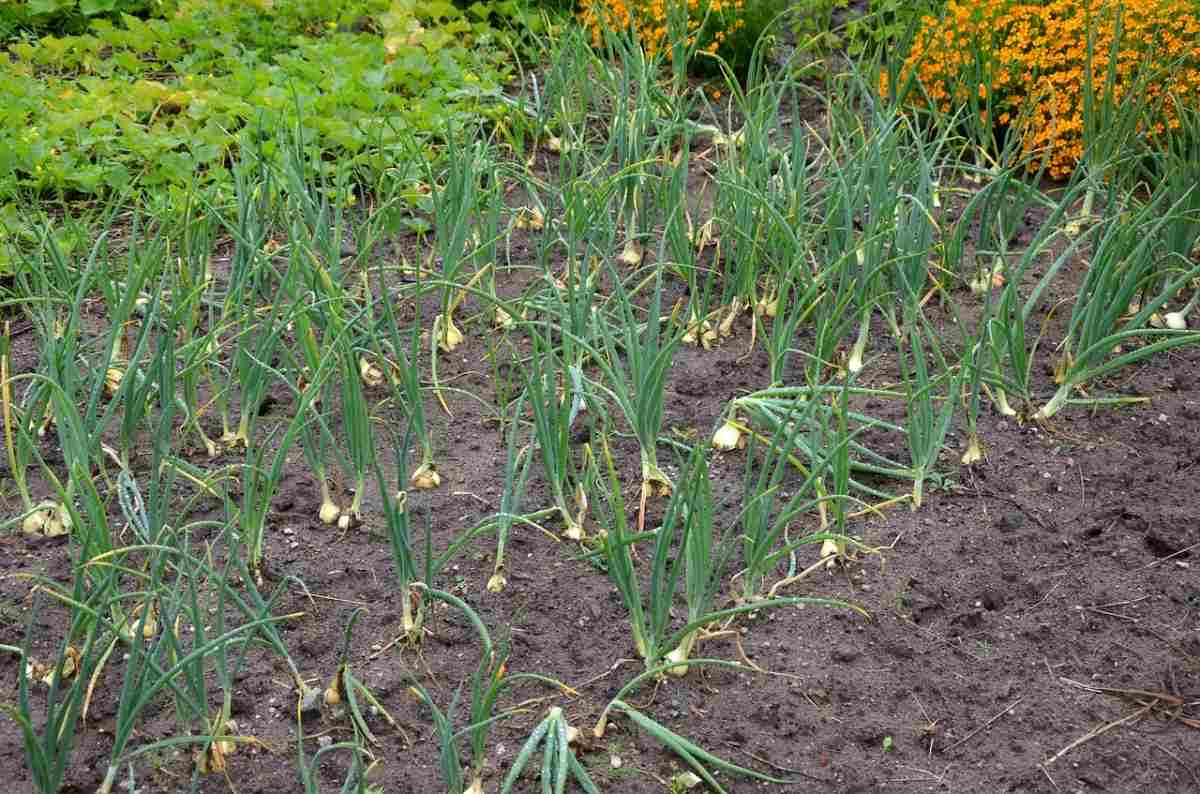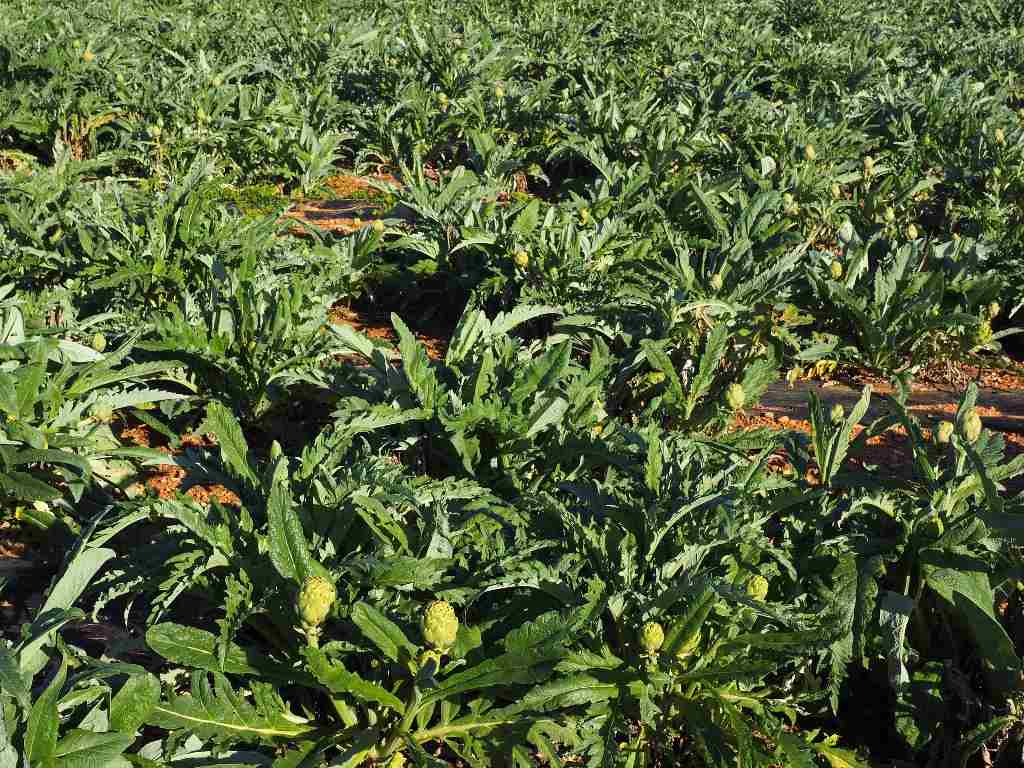Introduction: Hello friends today we are back with a great information on organic vegetable farming plan, advantages and scope. Organic vegetable farming is the most popular method followed by farmers in which the Vegetable crops are raised by the use of organic waste such as animal wastes, plant wastes, crop wastes, farm wastes, and biological materials, so as to keep the soil fertile. These organic materials get converted into bio fertilizers which release nutrients to crops which creates a sustainable eco-friendly environment without any pollution. Organic vegetable farming excludes synthetic inputs such as chemical fertilizers, pesticides, hormones, feed additives, etc. to the maximum extent. This helps the soil to retain its nutrients.
A step by step guide to organic vegetable farming plan
Organic Farming is highly beneficial to farmers as the vegetables produced have high nutritional quality with sufficient quantity. This farming system encourages the biological cycle by using microorganisms, soil flora, and fauna, plants, and animals. It helps to retain the fertility of the soil for longer durations. Organic vegetable farming is somewhat challenging as it is a risky method for beginners.
Soil requirement and management
Manures, green sand, sulfur, potassium, nitrogen, phosphorous, vermicompost, bio-fertilizers, boron, bone meal, green manure crops, etc. are the important components required for the organic vegetable. Most of the farmers rely on compost which is well decomposed as a natural fertilizer. Green manure helps to get the nitrogen from atmosphere along with which it increases soil nutrients and helps to store and hold the organic matter and nutrients in the non-growth season. Hence, the soil remains fertile for longer durations. This also helps to prevent diseases and insects. Animal manure adds great advantages to the soil in turn for the field or land. Potash helps to increase the potassium content in soil. Weeds and unwanted plants take advantage to grow rapidly in this farming which harms the vegetable and crops.
You should not miss the Goat Farming Business Plan.

Soil management techniques as part of organic vegetable farming plan
The equipment needed for organic farming should be natural as the biological process is controlled by microorganisms. The soil management techniques are different as this type of farming does not require any chemical substances.
Planting materials for as part of organic vegetable farming plan
Before planting the materials one should check for the soil management which needs to be perfect enough as the vegetable thrives to grow well in loose fertile soil. To attain this, the soil should be mixed up thoroughly with organic fertilizer. Raised beds are more productive in organic vegetable farming. Beds can be created in any shape by digging the soil 8-10 inches deep and raise the bed 4-6 inches up. This allows roots to grow faster at a depth of 12-16 inches. An important point to be noticed that bed depth depends upon vegetable varieties.
Choosing vegetable varieties based on the climatic conditions
When you choose organic vegetable farming, the soil will be richly formulated so that you can grow any crop at any season but not in an effective way, it might destroy your production due to ineffective climatic conditions. Hence, it is advisable to choose and cultivate seasonal vegetables. Careful observation is required if the chosen area is influenced by the climate or pests. Get good advice from the local government agricultural office which Vegetable types are best suited to grow in the chosen area. Organic farming is a profitable agricultural method where you can grow any vegetable but here is the vegetable list which has given huge profits and has become popular organic vegetables. These include cabbage, cauliflower, broccoli, peas, beans, spinach, herbs, lettuce, corn, tomatoes, cherry tomatoes, okra, brinjal, pumpkins, cucumbers, watermelons, carrots, radishes, beetroots, potatoes, and onions.
Importance of organic vegetable farming

In recent studies, it has been proved that many of the diseases and the cattle are recorded due to the usage of the harmful chemicals during the conventional cultivation process. Here, organic farming gained enormous importance which is produced from the organic waste that adds more advantages and improved human immune systems. The Vegetable harvested from this organic farming showed 50% more vitamins and nutrients than other methods. It mainly keeps the environment safe and retains soil fertility avoiding soil erosion. Hence, it has a high demand in the market and the farmers choose it as best cultivation method compared to conventional cultivation method.
You may also like the Pearl Millet Farming Practices.
Methods of organic farming
The methods of organic farming in India are of many types and are strategically suited to the type of produce focused upon. Numerous methods are followed and are in practice; however the most of the process are successful and few among them are discussed below.
Bio-dynamics
In this method farming operations are carried out based on astronomical calendar. Special sprays are prepared to sprinkle on farm and compost heaps. The focus is on improving soil texture and plant, controlling pests, and developing nutrient rich composts to enhance food’s vitality. It is better to get biodynamic certification for your farm.
Poly-cropping and crop diversity
Monoculture is harmful for soil health. Crop rotation with different types of crops in close succession like legumes and cereals helps in replenishing the soil minerals and natural nutrients that have been consumed by the previous crop. Multi-cropping or concurrent cultivation of a number of crops to complement the soil’s natural nutrition fixation cycle is also practiced. It further helps in repelling pests that may target one plant but cannot withstand another. Inter-cropping involves planting crops in the spaces left within rows of main produce on farm. This helps in optimization of resources and no part of the farm is left fallow. Leaves falling from one plant serve as manure for another and also keep pest population under control.
Effective microbe culturing
Aerobic and anaerobic genetically unmodified microbes like photosynthetic and lactic acid bacteria, ray and filamentous fungi, and yeasts are used for soil health improvement, natural pest control, compost preparation, and maintaining hygiene at farm. Animal waste is decomposed effectively to release nutrients that can render the soil more fertile.
Vermicomposting
Vermicomposting is a process of earthworms digesting the organic matter to a material that is essential for improving the growth and yield of different fields. This material is called vermicompost which contains nutrients, plant growth hormones and helps to improve soil structure by increasing the water-holding capacity of the soil. This process is called bio-oxidation and stabilization of the organic material, where the organic materials pass through the earthworm gut and produce the compost hence called vermicompost. As the earthworms plough the field making the soil fertile by releasing nutrients and other useful substances, they are popularly known as “farmers friends”.
Vermicomposting is a profitable business as many of them in recent times are fond of organic vegetables, fruits, and other products as they are not produced by using harmful chemical substances i.e., organic farms where they use these naturally produced composts and manures from the waste of animal and plant. These results in eco-friendly without disturbing the natural process of the environment.
By using proper species of earthworm vermicomposting can be done in compost pits. This can be organized into a production unit as the vermicompost has high demand in the market for the production of organic food products. This is a good profitable business where the costs involve less than Rs. 2.0 per kg where the vermicompost can be sold for Rs. 4.00 to Rs. 4.50 per kg.
This process starts with the collection of crop residues, agri-waste, Vegetable waste, cow dung, few animal wastes, and all the organic waste. The pits are kept shallow to avoid heat built-up that is harmful to earthworms. Earthworms transform the material in a faster process if the temperature is maintained around 30°C. To do all these processes first we need to construct brick-lined beds containing 0.9-1.5 m width and 0.25-0.3 m height and this should be constructed inside a shed open from all the sides.
For commercial purposes, the beds are prepared with 15 m length, 1.5 m width and 0.6 m height. These dimensions cannot be changed as the increase in the width affects the ease of operation and the increased height during conversion the heat will be built-up. Cow dung farm waste is placed in layers up to a height of 0.6-0.9 m and the earthworms are introduced in between the layers at a rate of 350 worms per m3 of bed volume that weighs nearly 1 kg. The beds are maintained at about 40-50% moisture content and a temperature of 20-30°C by sprinkling water over the beds.
Planting methods as part of organic vegetable farming plan
Organic seeds or seedlings are available in the markets and every vegetable has its individual instructions that are necessary for sowing. There are two types of planting methods in organic vegetable farming.
Incase if you miss this: Black Gram Farming Practices.

- Organic Seed planting method- organic Seeds are inexpensive and are available in various ranges of varieties where you have to raise them inside at least a few weeks. But for some vegetables like carrots, spinach, peas, etc. can be directly sowed in the land. When the planting time arrives the seedling has to be planted in the bed.
2.Organic Seedling planting method- This method is not so preferred unless you are a beginner. These seedlings can be directly transferred to the raised beds and have to be little careful while collecting the seedlings. One has to collect these seedlings from an organically certified nursery.
Weeding as part of organic vegetable farming plan
Weeds are the most problematic components in organic cultivation, as these spread unnecessary growth by taking all the nutrients from the organic soil and also create diseases, shelter to the insects, etc. The weeding procedures should be done rapidly for the success of organic vegetable farming. Weeds can be reduced by following many ways such as biological. Cultural, thermal and mechanical schemes. But following these methods incurs a lot of work and is costlier. Cultural Weed control process is the most common method followed in organic vegetable farming. These cover crops surpluses the soil which stops weeds growth. Intercropping can also be the best solution. Biological weed control procedures such as Nitrogen eradicates and using irrigation also helps to lessen the growth of weeds by reducing the moisture content to the weeds. Organic wedding tools such as brush weeders, summers, mowers, hoes, tines, harrows are used in weeding.
Organic pest control as part of organic vegetable farming plan
The best practices to control pests in organic vegetable farming are-
building compost heavy soil, disease immune vegetable seeds or plant, careful monitoring during vegetable growth stages, pulling out the affected or weaker area of a plant, maintaining dry foliage, sufficient irrigation during the dry season, protecting the plants from direct sunlight, practicing mulching methods, minimizing insect habitat, applying for an organic certification.
Risks involved in organic vegetable farming

There are many challenges in organic vegetable farming such as higher production costs of management, labour charges even for lower farm yields. For few farmers, they experienced very little change in the yield but for horticultural crops such as Tree fruits have a markable significant difference in the yield have been observed. The marketing costs are higher but there is less infrastructure for maintaining organic varieties. At present, demand for organic vegetables is more than supply.
Conclusion of organic vegetable farming plan
The yield is high for few varieties of vegetables but some vegetables have a very less yield. A minimum of 25% increase in the yield was observed in organic vegetable farming compared to conventional cultivation. Organic agriculture in India has a promising future. Increasing health awareness among masses, framing of stringent governmental regulations for controlling pollution of natural resources, and reducing emission of greenhouse gases, granting of attractive subsidies, and relaxing of export laws for organic produces would offer needful impetus for promoting organic farming in India in coming days.
You may be interested in Hydroponic Tomato Farming.

I want to buy some broccoli seeds . Can I buy it from you?
Weuaculture, Veterinary & Animal Husbandry,
Land Utilization, Agro, Forestry, Natural
Resources Management, Weather stations, ICT
etc.
● In Food Processing sector – Solvent Plants, Oil
Refinery, Grain Processing, Oil Milling, Flour
Mills, Rice & Maize Mills, Dairy Plants, & Cattle
Feed Plant, Cold Storage, Solar dryers, Spice
grinding mills, etc. as well as Agriculture & Food,
Bakery, Vegetables & Fruit Processing plants, Honey Processing, Beverage Plants, Ice-cream,
Water treatment & Bottling, Canning,
Packaging, Poultry feed processing machines
& equipment.
● Supply of Green/Poly House, Agriculture
Tractors, and Implements like Harvester,
Planter, Seed Drill, Trolley, Solar Pumps,
Diesel Engines, Irrigation Systems, Tools, Parts
and Maintenance services.
● Feasibility Studies, Detailed Project Reports, Planning, Designing, Monitoring, Management of Projects,
and facilitating clients to obtain Latest Technologies developed in India.
● Food Testing Laboratories, Soil Testing Laboratories, Chemical Laboratories, Tissue Culture Labs and
provide training to farmers for increasing crop output. We also set up community radio stations for farmers
to enable them to get weather updates, advisory services on crop management, market information etc.
good information. thanks for sharing.. keep it up